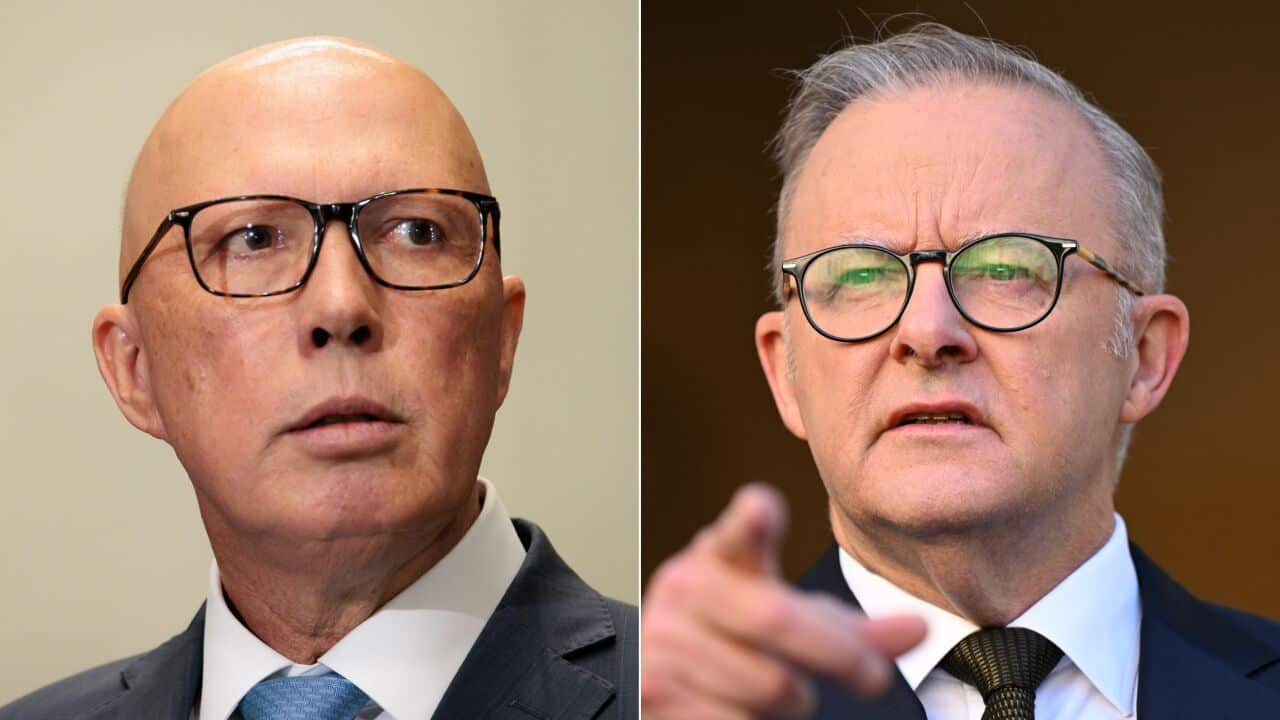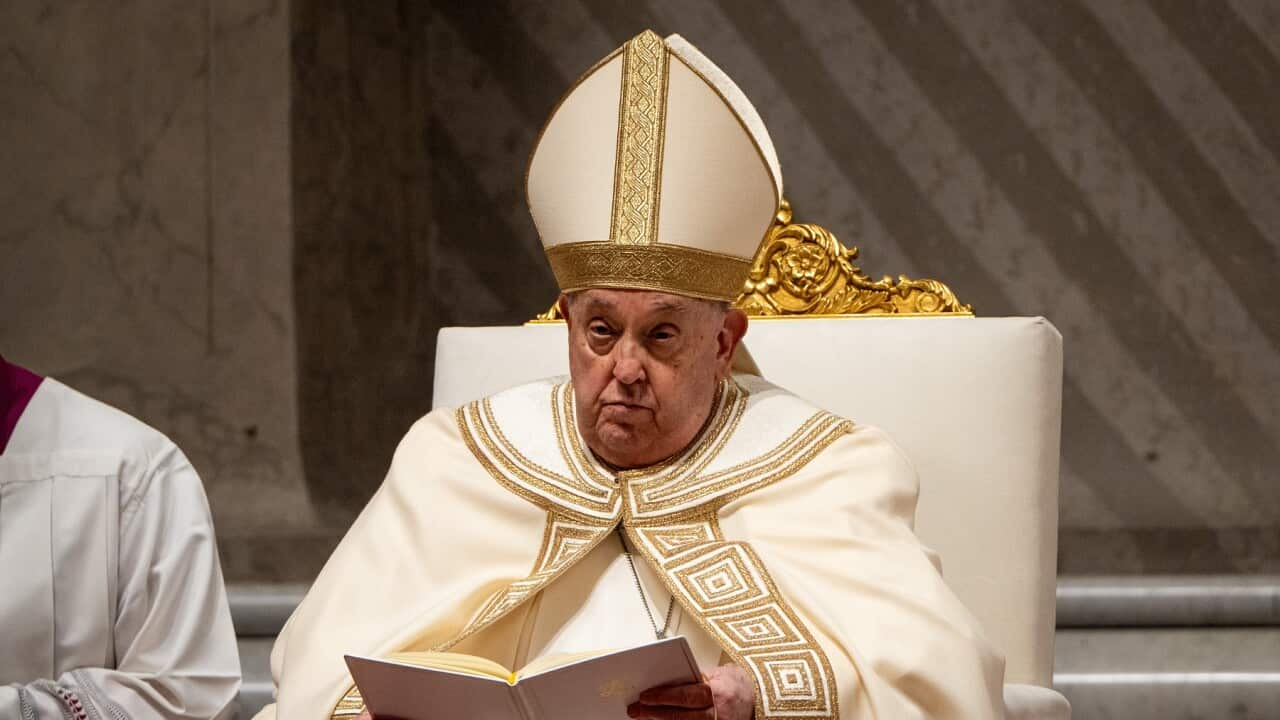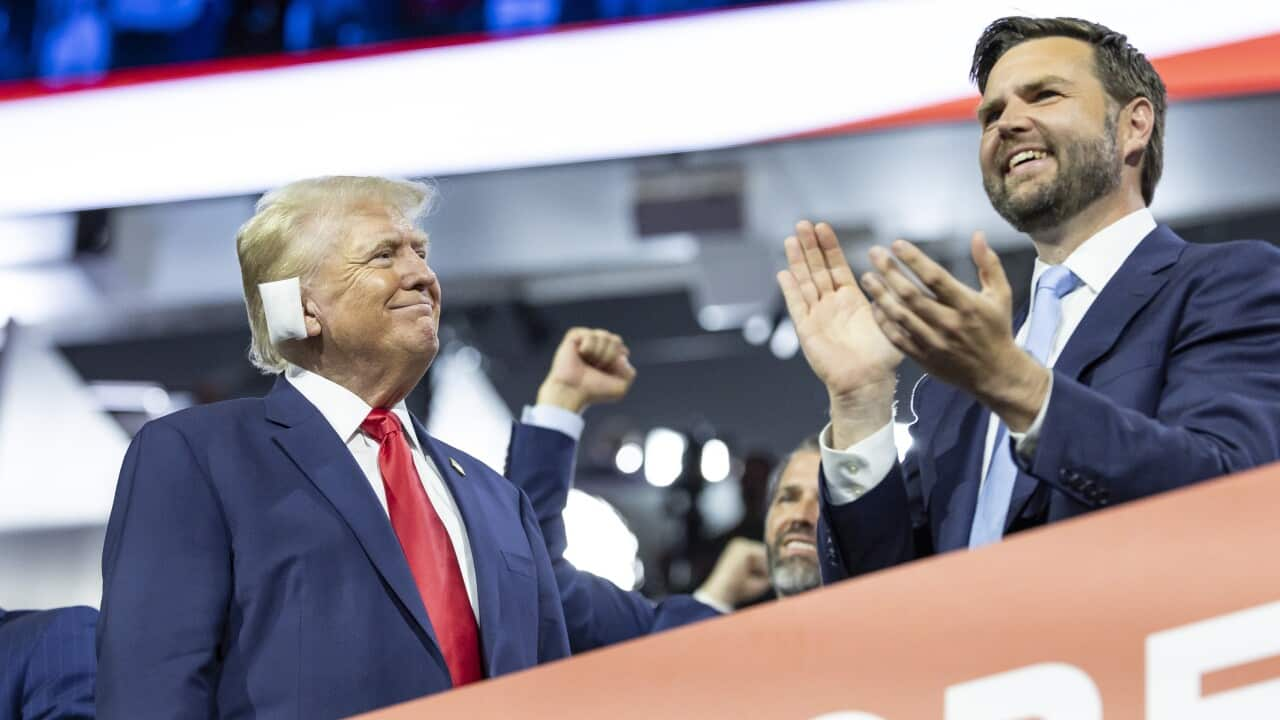Highlights:
- Voting is in its last stages in many states in US and results will come out in a few hours.
- Indian voters were in a decisive position in some states.
- Not all Indians support Donald Trump contrary to common belief.
Sumit Ganguly is a distinguished Professor of Political Science and holds the Rabindranath Tagore Chair in Indian Cultures and Civilizations at Indiana University, Bloomington, in the US state of Indiana.
He says it is hard to predict the results, but Joe Biden would have a good chance of winning if he manages to win Pennsylvania, Michigan, Arizona and possibly Iowa.
Listen to the complete interview here:
LISTEN TO

How the Indian vote came to matter in the US election
SBS Hindi
09:01
"If he can win those states then there's a clear pathway for Biden to get 270 electoral votes. Ideally, Biden should win North Carolina and Georgia, and if he does that, then he can afford to lose much of the Midwest and still manage to get to 270."
Professor Ganguly moved to the US from India some 50 years ago and has been studying US elections closely since then. He says this election is absolutely momentous.
"This election is of extraordinary significance because essentially the two presidential candidates reflect two visions of America.
"One vision represented by Biden is inclusive. It seeks to bring about a degree of economic justice and equity in America for all of us. Where the America that trump represents is an America largely for economic elites and Whites. There are no two ways about it," he told SBS Hindi by phone.
"We essentially have two competing visions for the future of America."
A popular misconception, he says, is that most Indians in the US support Donald Trump.
"Unfortunately, that is a popular misconception largely because of a small segment of the Indian community, about 22 per cent based on polls that have been conducted very seriously. Surveys that have been conducted with 22 per cent are in favour of Trump, close to 75 per cent are in favour of Biden.
"So while Trump's numbers were slightly increased in 2016, about 17 per cent of the Indian electorate supported Trump (in 2016), it's gone up to about 22 per cent. And, in considerable part, these are the same people who support Narendra Modi, and they are very moved by the apparent friendship between Modi and Trump and consequently they're inclined to vote for Trump."
Indians who support President Donald Trump, he says "also tend to be disproportionately wealthy, and they like the fact that Trump has reduced their taxes and consequently they are supporting Trump; most of the Indian American community is solidly behind Biden."
There's another connection Indians have with US politics - Joe Biden's vice-presidential candidate, Kamala Harris - the first woman of South Asian descent to be selected on a presidential ticket.
As people cast their vote in the US, some, living in Thulasendrapuram, the village of Ms Harris’ grandfather, .
Indian vote
Though there are less than four million Indians in the United States, Indian-American voters played a significant role in some states.
"There are Indians in particular states like Arizona and Texas wherein specific constituencies they can make an important difference and consequently the Indian vote has come to matter in this election," he said.

Sumit Ganguly, Rabindranath Tagore Professor, Political Science Source: Department of Political Science, Indiana Uni.





